Revealed: The Top 5 Messiest Items We Flush Down the Toilet Are you guilty of flushing any of these items down YOUR toilet?
It may seem like a case of ‘out of sight, out of mind’ when we flush waste down the toilet.
But apart from clogging our sewers, disposing of anything that doesn’t fall under the ‘three P’s’ (pee, poop and paper) can have harmful effects on nature.
According to Norwegian scientists, people are still flushing all kinds of things down the toilet that should actually end up in the trash.
Their wastewater sampling project identified five items that are flushed most frequently.
Have you ever thrown them in your toilet?
A wastewater sampling project by SINTEF, a research organization in Trondheim, Norway, now reveals the top five items you should not flush down the toilet. This disgusting image shows plastic, cigarette butts and more
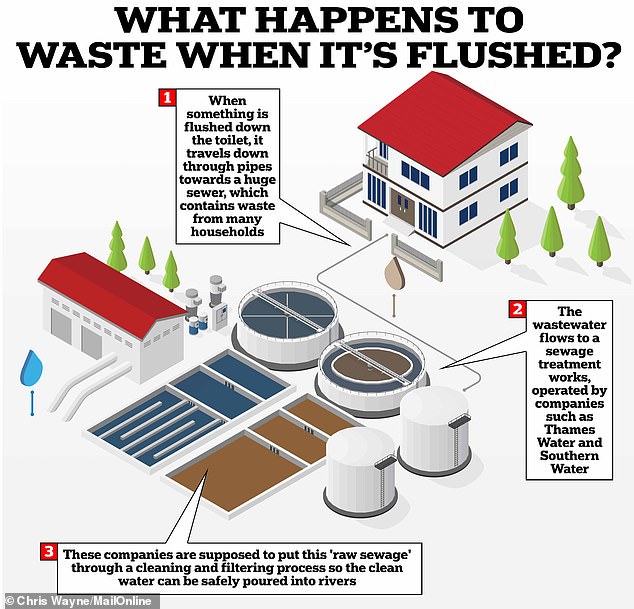
This graph shows what happens to items when they are flushed down the toilet. Scientists warn that they routinely end up in waterways and oceans
Experts and activists often say that you should only flush feces, pee and toilet paper down the toilet.
But experts at SINTEF – a research organization in Trondheim, Norway – have identified a series of bizarre objects that break this rule.
According to them, the five most common things that should not be flushed down the toilet are cotton swabs, contact lenses, condoms, tampons (or sanitary towels) and wet wipes.
All of these products should instead be disposed of with normal household waste.
Packaging and advertising on some of these products – especially wet wipes – suggest that they can be flushed away, using words like “natural” and “biodegradable.”
But this can lead to blockages further down the sewer, creating huge ‘fatbergs’ that can take months for workers to remove.
“Even if a product is labelled as natural, this does not mean that it will simply dissolve when it enters the natural environment,” says Ida Beathe Øverjordet, senior researcher at SINTEF.
‘Such products still have a very long degradability time and should not be flushed down the toilet, even if the label states that they are biodegradable.’
Some wet wipes even say ‘flushable’ on the packaging, but this is not the case (in fact, no wet wipe is flushable).
According to Øverjordet, the decomposition time for wet wipes labelled as ‘natural’ can be up to 200 years. For wipes containing plastic (which is soon to be banned in the UK), the decomposition time is even longer.
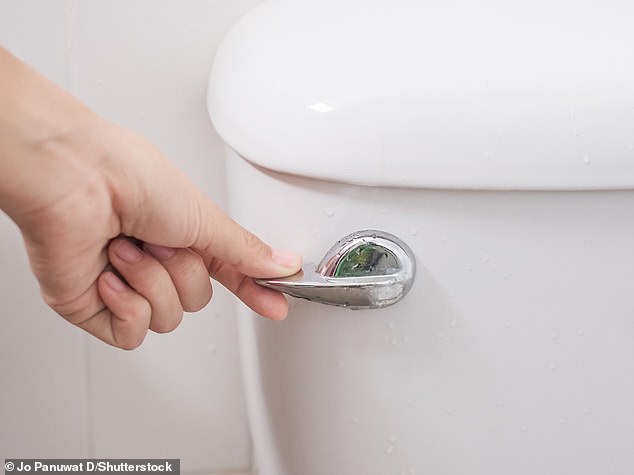
Wet wipes can end up on our beaches and in the environment as they are often accidentally flushed down the toilet instead of being thrown in the trash (stock image)
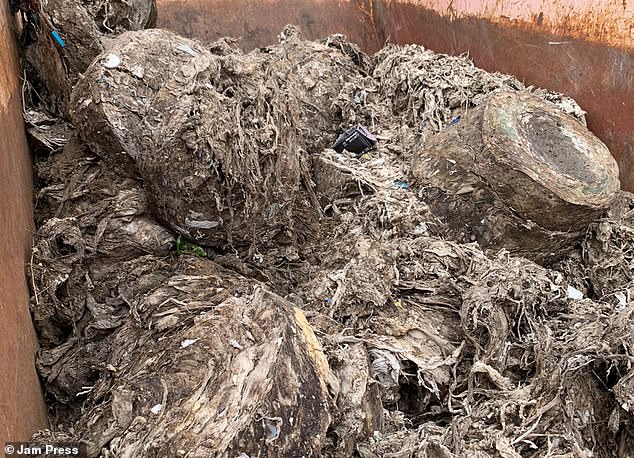
Fatbergs are huge amounts of waste material that form in a sewer system from items that should not be flushed, such as wet wipes and food waste. Pictured is a fatberg at Fornham Water Recycling Centre in Suffolk
When something is flushed down the toilet, it ends up through pipes in a large sewer. This is where the waste from many households is located.
Ultimately, the wastewater flows to a sewage treatment plant, which is operated by companies such as Thames Water and Southern Water.
These companies must clean and filter this ‘raw sewage’ so that the clean water can be safely discharged into rivers.
It is often assumed that sewage treatment plants catch everything we flush away before the water is discharged into the sea. According to Øverjordet, this is not the case.
A large proportion of wastewater treatment plants – including those in Norway and especially along the coast – are only ‘primitive installations’ that collect only a small portion of the waste.
If they have not yet clogged the sewers, these particles can enter the oceans via rivers, polluting the water and killing marine life.
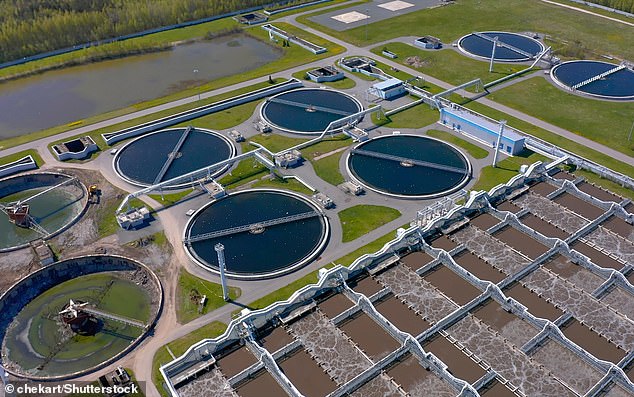
The photo shows a wastewater treatment plant, which cleans wastewater so that it can be safely discharged into the environment.
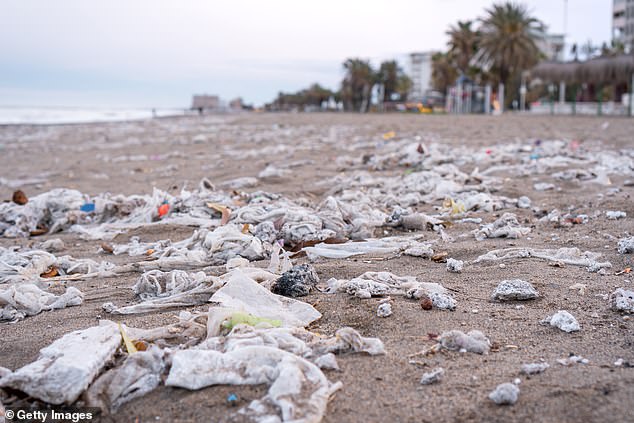
Harmful bacteria on plastic waste from sewage washing up on beaches can survive long enough to pose a risk to human health
In Norway, 10 percent of Norwegian wastewater systems operate without any form of water treatment.
According to the researchers, there is no easy way to measure how much waste is flushed down the toilet, as this happens at home.
In Longyearbyen on Spitsbergen, a town with 2,500 inhabitants, the local government currently measures the amount of collected waste using grids placed over the outflow points.
The results show that a whopping 80 kilograms of waste flows through the city’s sewer system every week. The researchers ‘can only imagine how such a figure compares to the world’s largest cities’.
Finally, they advise the public to always place a waste bin in the bathroom to avoid the tendency to flush waste.
The researchers also say that chemical residues from medications we take, such as paracetamol, end up in our urine and cannot be filtered out by sewage treatment plants. Although there is little we can do about this.
“These substances have the same effects on the natural environment as they do on people,” says Øverjordet.
‘Drugs such as paracetamol can affect the male sex hormones of many organisms and disrupt the reproductive capacity and future survival of several animal species.
“But we still have to take our medicine and go to the bathroom.”
